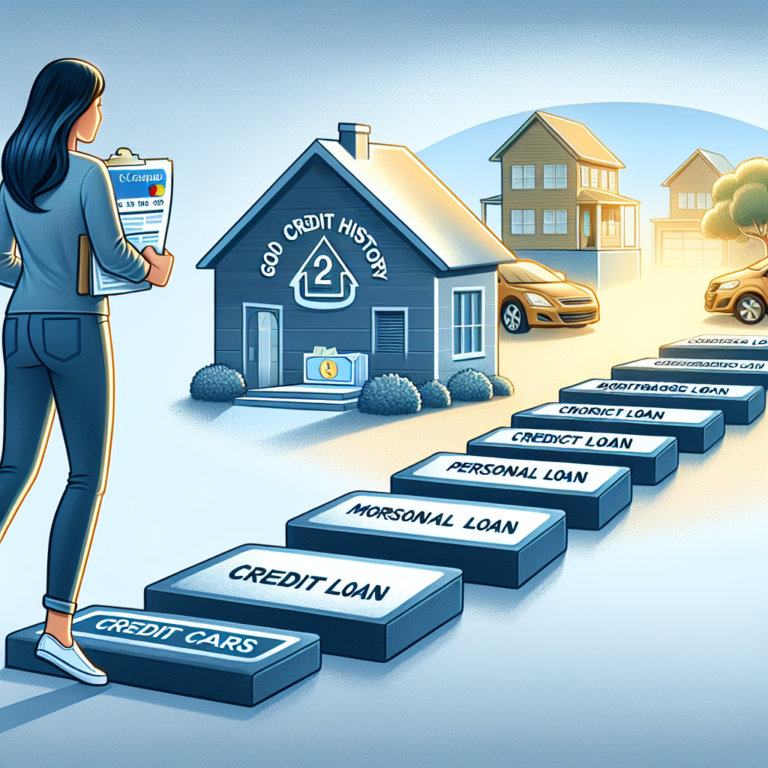In today’s world, your credit history is more than just a number; it is a fundamental aspect of your financial identity. A good credit history can pave the way for opportunities such as securing loans, purchasing a home, or even landing a job. However, building a good credit history from scratch can seem like a daunting task, especially if you have no prior experience with credit. This comprehensive guide will walk you through the steps necessary to build a good credit history from scratch and provide you with the tools you need to maintain it.
Understanding Credit History
Before diving into the practical steps of building credit, it is essential to understand what credit history is. Your credit history is a detailed record of your borrowing and repaying activities, maintained by credit bureaus. This history is composed of various components including:
- Credit Accounts: These include credit cards, loans, and mortgages.
- Payment History: A record of on-time or missed payments.
- Credit Utilization: The ratio of your used credit compared to your total available credit.
- Credit Inquiries: Records of who has checked your credit report and when.
- Public Records: Information such as bankruptcies or foreclosures.
FICO scores, ranging from 300 to 850, are often used to represent your creditworthiness, with a higher score indicating better credit. Understanding these elements can give you a roadmap to follow as you build your credit history.
Start with a Secured Credit Card
One of the easiest ways to start building credit is by obtaining a secured credit card. Unlike traditional credit cards, a secured credit card requires a security deposit, which usually serves as your credit limit. This reduces the risk for the lender and makes it easier for you to qualify.
Here are some tips to effectively use a secured credit card:
- Choose Wisely: Look for a card with low fees and a favorable interest rate.
- Use Sparingly: Use your card for small, regular purchases like groceries or utility bills.
- Pay in Full: Always pay your balance in full to avoid interest and build a positive payment history.
- Monitor Your Usage: Keep your credit utilization below 30% of your credit limit.
With responsible use, you can build a respectable credit score that will pave the way for unsecured credit cards and loans in the future.
Become an Authorized User
Another effective way to start building credit is by becoming an authorized user on someone else’s credit card. When you become an authorized user, the primary cardholder’s credit history for that card is added to your credit report, which can help boost your credit score.
Here are a few points to consider:
- Choose a Trusted Individual: Make sure the primary cardholder has a good credit history and manages their account responsibly.
- Understand the Risks: If the primary cardholder misses payments or has high utilization, it could negatively impact your credit.
- Monitor the Account: Keep an eye on the account activity to ensure it’s helping, not hurting, your credit.
Becoming an authorized user is an excellent way for beginners to build credit without the responsibility of managing their own credit card.
Apply for a Credit-Builder Loan
Credit-builder loans are designed specifically to help individuals build or improve their credit history. Unlike traditional loans, the borrowed amount is typically held in a savings account until the loan is paid off.
Here’s how to make the most of a credit-builder loan:
- Find the Right Lender: Credit unions and online banks often offer credit-builder loans with favorable terms.
- Pay On Time: Ensure you make all your payments on time to build a positive payment history.
- Review the Terms: Understand the interest rate and any fees associated with the loan.
Upon successful completion of the loan, you not only build your credit but also gain access to the funds held in the savings account, often with added interest.
Utilize Student Loans Responsibly
If you are a student, responsibly managing your student loans can be an effective way to build credit. Federal and private student loans are reported to credit bureaus, and timely loan repayment can boost your credit score.
Here’s what to keep in mind:
- Make Payments on Time: Consistently making on-time payments is crucial for building a good credit history.
- Understand Deferment Options: If you experience financial difficulties, explore deferment or forbearance options rather than missing payments.
- Track Your Loans: Use a student loan management tool to keep all your loans organized and ensure timely payments.
By responsibly managing your student loans, you can establish a solid credit history that will benefit you long after graduation.
Monitor Your Credit Report
Regularly monitoring your credit report is key to understanding and improving your credit history. You are entitled to one free credit report per year from each of the three major credit bureaus—Equifax, Experian, and TransUnion.
Here’s how you can effectively monitor your credit report:
- Check for Errors: Ensure there are no inaccuracies in your credit report. Dispute any errors you find with the credit bureau.
- Track Your Progress: Regularly review your report to see how your credit-building efforts are paying off.
- Set Up Alerts: Many financial institutions offer credit monitoring services that alert you to significant changes in your credit report.
Monitoring your credit report helps you stay informed and take proactive steps to protect and improve your credit history.
Establish Healthy Financial Habits
Building and maintaining a good credit history requires cultivating healthy financial habits. Here are some tips to help you stay on track:
- Budget Wisely: Create a budget to manage your income and expenses effectively.
- Avoid Unnecessary Debt: Only borrow what you can afford to repay and avoid high-interest payday loans.
- Build an Emergency Fund: Having an emergency fund can prevent you from falling into debt during unexpected financial setbacks.
- Stay Informed: Educate yourself about personal finance and credit management to make informed financial decisions.
By incorporating these habits into your daily life, you can build a strong foundation for a good credit history and overall financial well-being.
Conclusion
Building a good credit history from scratch may seem overwhelming, but with the right approach and tools, it is entirely achievable. Starting with secured credit cards, becoming an authorized user, using credit-builder loans, responsibly managing student loans, and monitoring your credit report are effective strategies to get you on the right track. Moreover, adopting healthy financial habits will ensure that you not only build but also maintain a robust credit history. Remember, building a good credit history is a marathon, not a sprint. Patience, discipline, and consistency are key to achieving your financial goals.





